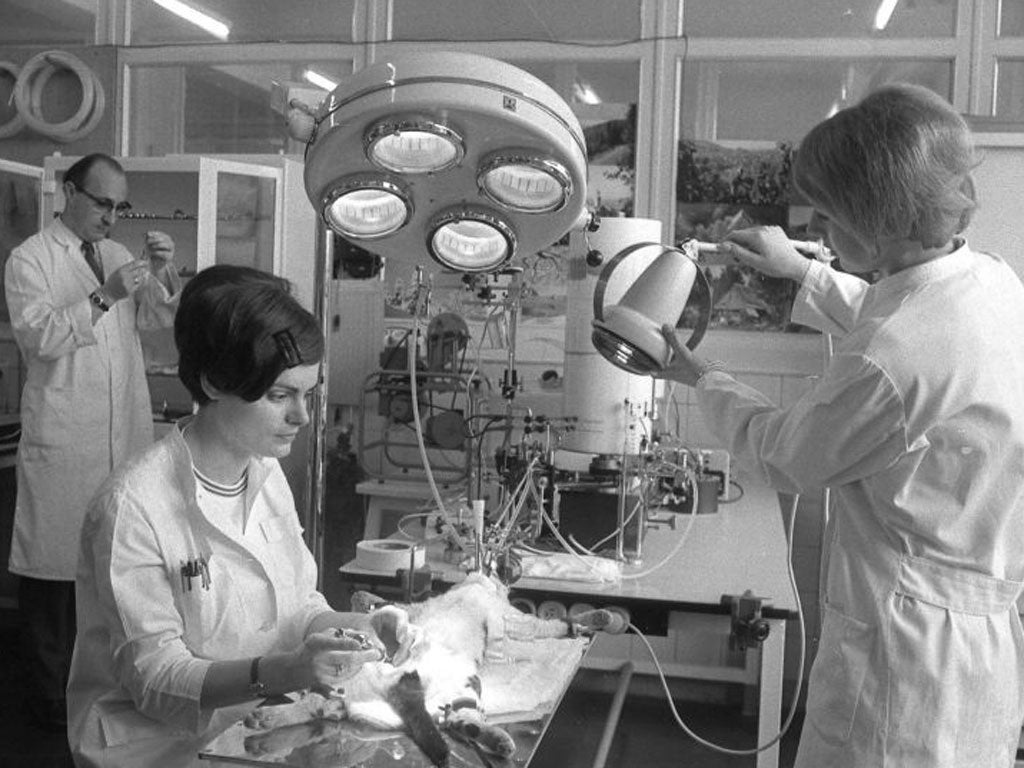German firm under fire for Thalidomide 'apology'
Survivors: Saying sorry after 50 years without compensation is pointless

A campaigner who went on hunger strike to win compensation for thalidomide victims yesterday branded a long-awaited apology by the manufacturer of the drug this weekend as "useless" if it now fails to pay compensation.
The German company Grünenthal, which developed thalidomide, finally issued an apology on Friday to the thousands born with disabilities as a result of their mothers taking the drug more than 50 years ago. The apology underlines one the darkest episodes in pharmaceutical research history. The drug, dispensed as a mild sleeping pill safe even for pregnant women, caused more than 10,000 babies around the world to be born with malformed limbs.
Kim Fenton, from Belfast, Northern Ireland, welcomed the apology and said it would mean a lot to the parents who still suffer feelings of guilt for the plight of their disabled children. But the 50-year-old, born with malformed arms and legs after her mother took thalidomide in the 1960s, said Grünenthal now needed to think about compensating the survivors.
"An apology isn't going to change things, but it is eventually nice to get an apology," Mrs Fenton said.
"I thought their statement was very powerful. And I think it will have an impact on my mother and many others who've held this guilt for so long. But I'm just hoping, on the back of this, that the next step for the company is to give some sort of compensation.
"If they're not going to start talking to us about compensation, the apology is useless."
Mrs Fenton, formerly mayor of Castlereagh Borough Council in Northern Ireland, said she and other campaigners have been fighting for an apology from Grünenthal since 1993.
She also went on hunger strike in 1994 to put pressure on the British government to grant higher compensation to thalidomide survivors. Six years later, the Department of Health finally issued an official apology and allocated funds to help those affected.
The scandal of thalidomide babies unfolded in the late 1950s and early 1960s when the drug was prescribed to pregnant women across the world as a sedative and to help with morning sickness. But alarm bells began to ring when thousands of otherwise healthy babies were born with missing or deformed limbs and other disabilities including blindness, deafness and heart problems. Only around half born with thalidomide disabilities survived. In 1961, the drug was withdrawn from the market.
On Friday, Harald Stock, chief executive of Grünenthal, finally announced that his company was sorry it had failed to reach out to thalidomide victims and their families. He said: "We ask for forgiveness that for nearly 50 years we didn't find a way of reaching out to you from human being to human being.
"We ask that you regard our long silence as a sign of the shock that your fate caused in us.
"We wish that the thalidomide tragedy had never happened. We see both the physical hardship and the emotional stress that the affected, their families and particularly their mothers, had to suffer because of thalidomide and still have to endure day by day. Instead, we have been silent and we are very sorry for that."
The apology was issued at the unveiling of a bronze statue symbolising a child born without limbs because of thalidomide.
But Mr Stock also said the drug's devastating side effects "could not be detected" by the tests carried out before thalidomide was marketed.
This pronouncement has prompted other thalidomide campaigners to dismiss Grünenthal's apology as insincere and hollow.
Rosaleen Moriarty-Simmonds, a thalidomide survivor from Cardiff, Wales, said: "I don't feel that it was an apology. I think it was more a damage-limitation exercise because of the ceremony that was held for the unveiling of the statue. They've had 50 years to apologise – why leave it until now? I don't think it was a true apology because they've never accepted liability or responsibility."
A drug on trial
1953 The drug is developed by the Grünenthal Group in Germany.
1958 Thalidomide is licensed for use in the UK.
1961 William McBride, an Australian doctor, reports an increase in the number of deformed babies being born in his hospital, all to mothers who had taken thalidomide. The drug is withdrawn later that year.
1968 Distillers Biochemicals Limited (now Diageo), the drug's UK manufacturer, reaches a settlement with affected families after a legal battle.
2004 Doctors are allowed to prescribe thalidomide on a case-by-case basis and under strict controls.
2005 Diageo ups annual compensation payments from £2.8m to £6.5m.
2008 The European Medicines Agency approves thalidomide as a treatment for myeloma after a study the previous year proved its effectiveness in combating bone-marrow cancer.
2009 The Government agrees to give £20m to the Thalidomide Trust.
2010 Mike O'Brien, the health minister, apologises to thalidomide survivors on behalf of the Government.
Subscribe to Independent Premium to bookmark this article
Want to bookmark your favourite articles and stories to read or reference later? Start your Independent Premium subscription today.

Join our commenting forum
Join thought-provoking conversations, follow other Independent readers and see their replies